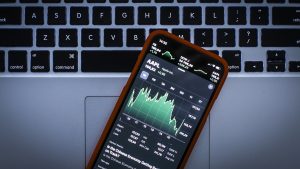This article is reprinted by permission from The Escape Home, a newsletter for second homeowners and those who want to be. Subscribe here. © 2021. All rights reserved.
Realtors are describing the second-home market as “stuck.” To better understand what that means, I asked a few folks in the industry to look into their crystal balls for me. We posed three questions to three housing experts. Edited excerpts:
EH: Buyers don’t feel quite the same urgency as earlier in the pandemic, and sellers are wanting the high prices they saw their neighbors get. Thoughts on what’s to come here?
Issi Romem
We’re definitely not in the frenzied days of lockdown-induced homebuying anymore, says Issi Romem, economist and founder of MetroSight, a real-estate economics research firm. “…the big wave of adjustment to a new ‘pandemic state of the world’ has gone by. In other words, the big one-off bulk of people for whom it newly made sense to buy a second home because of the pandemic have acted on it,” he said.
“Those left buying second homes now are a gradual flow of people reaching the conclusion they can and want to buy a second home, as opposed to the one-off mass whose circumstances shifted all of a sudden last year. And even if the pandemic state of the world means that the flow of second home buyers now is greater than it used to be pre-pandemic, it’s probably still a trickle compared to that initial wave that’s passed.”
EH: How do you think financing looks over the next year? We’ve been in an era of low interest rates for so long. And yet second-home markets feel like cash is king.
Redfin CEO and president Glenn Kelman reminds us, “the second-home market depends more on the stock market than on interest rates, but rates usually affect the stock market. Rates are going up. Some buying is fueled by investors, but these folks are borrowing money too. An era of very low rates made it easy to cash-flow a house.”
His colleague Taylor Marr, Redfin’s deputy chief economist, says: “Credit for second home purchases tightened in the spring and has recently been eased again, which at least in part explained the sudden dip in March and subsequent rebound in September.”
A recent report from the National Association of Realtors had the all-cash share of second home purchases in February to March 2021 north of 60%, says MetroSight’s Romem: Because “those 60% are wealthy individuals buying all-cash, that means the second home market is probably less susceptible to seeing reduced demand following a potential rate hike (although squeezing the remaining 40% could still hurt it). On the other hand, inasmuch as those 60% are investors who appear to be paying all cash but are nevertheless using leverage (leverage that isn’t tied to mortgages on the individual properties they’re buying), they could be susceptible if rates go up (or at least, the pool of investors won’t replenish as fast if rates rise; existing investors may have fixed rates).”
EH: How much of home-buying is fueled by investors, whether serious or Airbnb superhost types?
Through October, Redfin’s Marr says, “we are still seeing elevated rates of second home mortgages. This data excludes pure investment properties, but surely many of these second/vacation home buyers plan to utilize AirBnb or other services to offset the cost of ownership.”
This article is reprinted by permission from The Escape Home, a newsletter for second homeowners and those who want to be. Subscribe here. © 2021. All rights reserved.
This post was originally published on Market Watch




